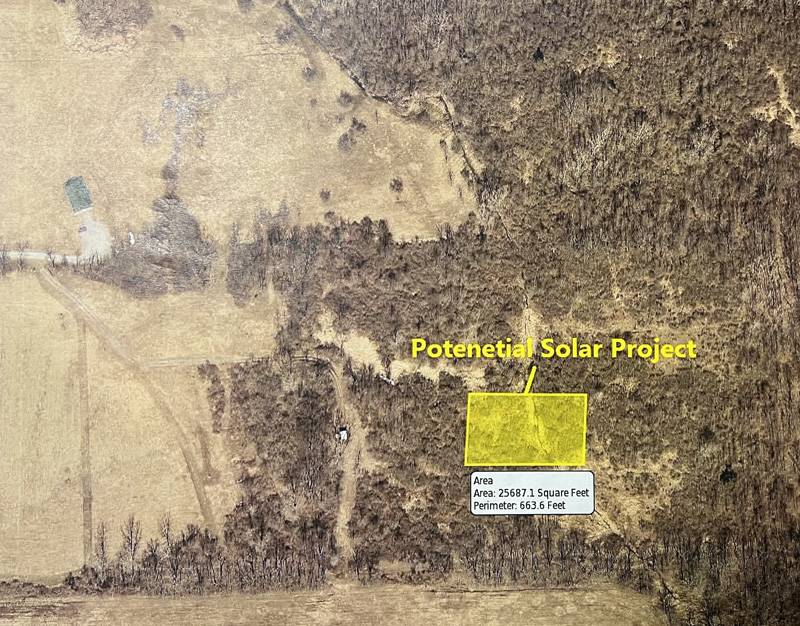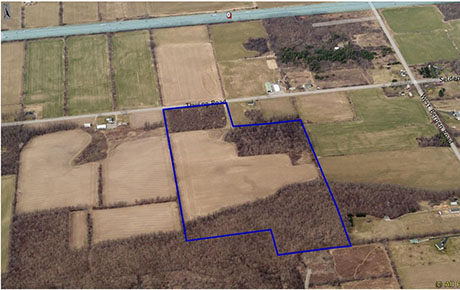Town planners approve changes to Oak Orchard Road 5MW solar project site plan
A senior associate with a Rochester-based engineering firm on Tuesday night updated the Batavia Town Planning Board on a proposed solar project on Oak Orchard Road, outlining four changes from the site plan that originally was submitted nearly a year ago.
Marc Kenward of Erdman Anthony LLC, representing New Leaf Energy of Lowell, Mass., said revisions have been made in four areas – type of solar panels, potential glare, the entrance to the array and location of National Grid’s inner-connection service line.
The plan is to place a 5-megawatt solar farm on 20 acres at 7757 Oak Orchard Rd., property owned by Batavia businessman and farmer Tim Call. As initially presented, the solar installation will go on an 85.5-acre parcel just south of Daws Corners on Route 98.
The large tract already contains a 15-acre solar farm, which will share its existing entrance with the New Leaf Energy project, Kenward told the board during the meeting at the Batavia Town Hall of West Main Street Road.
Kenward, working off a large drawing of the area in question, said that “the company that owns the array out back – we’re still waiting on that signed agreement to use this existing entrance, which we were rather forced to do because the DOT (state Department of Transportation) only allows one entrance to a parcel like this.”
Earlier, he informed the board that the New Leaf Energy project is switching from “fixed” solar panels to what he called “trackers” that move “and follow the sun the whole day.” The trackers will be placed in a north-south direction, unlike the fixed panels that were lined up in an east-west direction.
He said a glare study was conducted about three months ago and has been deemed “satisfactory” and that the National Grid inner-connection was moved south by about 80 to 100 fee to become perpendicular with Route 98. A turnaround for National Grid trucks to maneuver also has been added.
Following his 11-minute update, the board unanimously voted to approve the revised site plan. Work on the property is several months away, Kenward noted, added that construction plans need to be drawn up.




